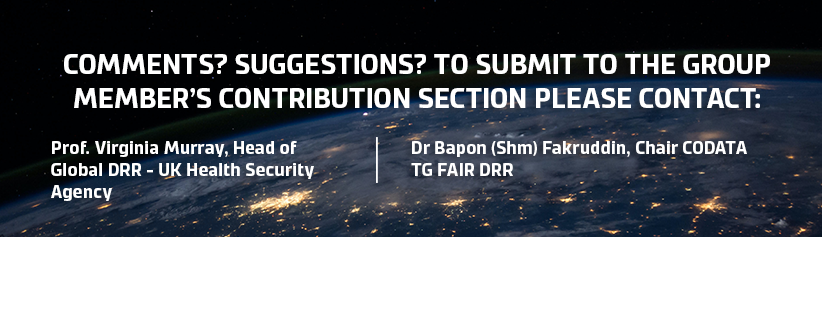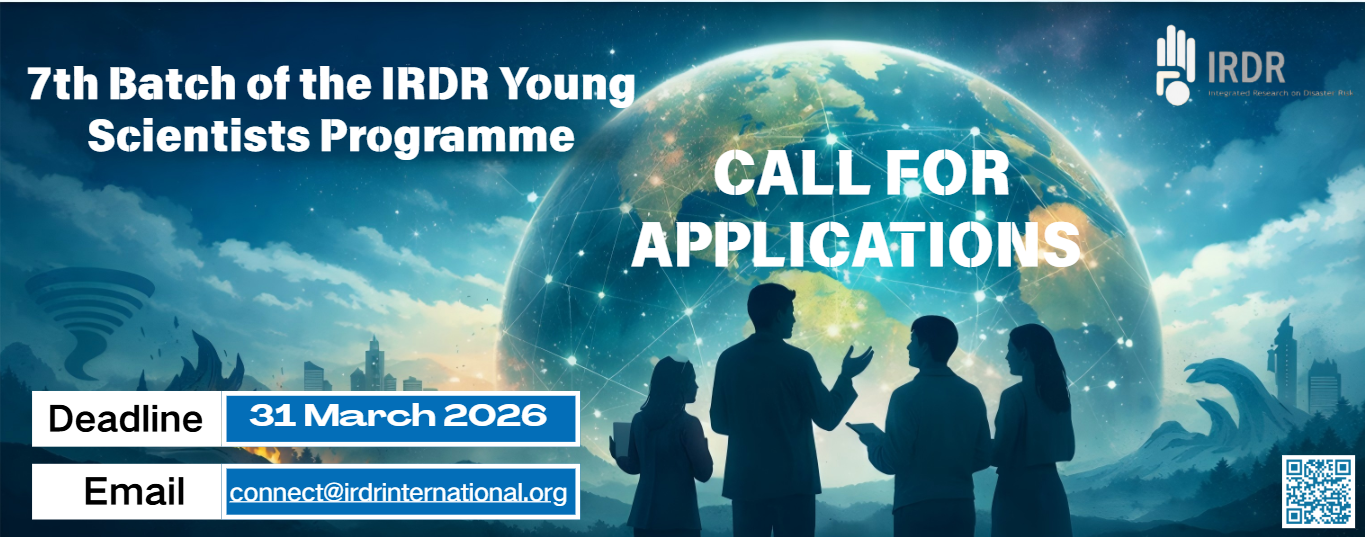Newsletter subcription refers to Click to Subscribe
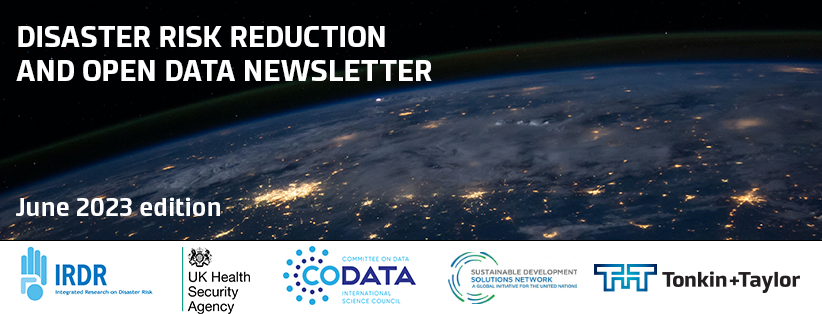

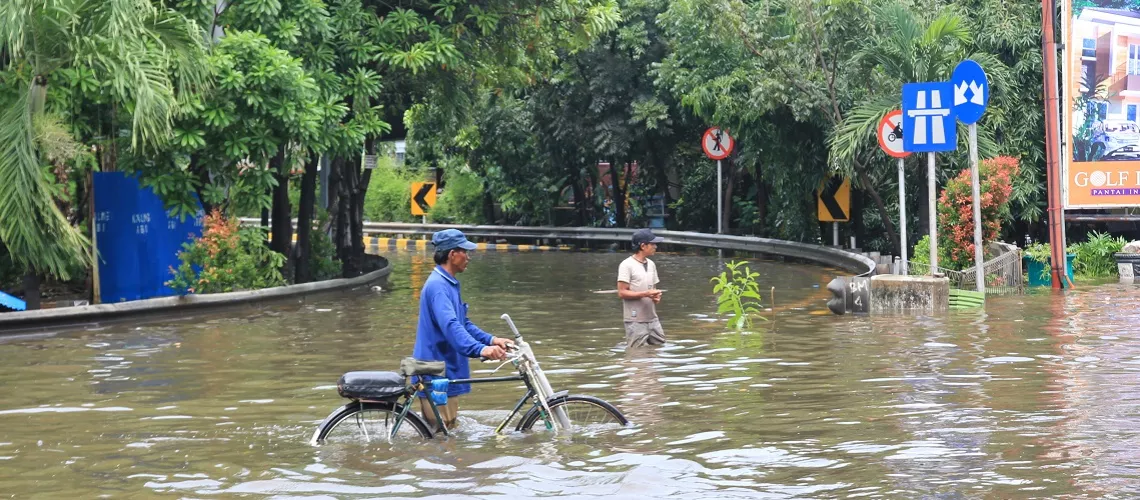
Climate and disaster risk screening – A building block for Paris Alignment
Climate change-induced disasters are increasing in frequency and intensity and pose a growing threat to development, with communities and infrastructure increasingly vulnerable. Risk screening is a key step in the process of adapting to climate change and building resilience to shocks.
The private sector, as a first responder and development actor, is critical to bridge the divide between humanitarian and development approaches in the context of disaster management. A key takeaway of the regional workshop for Asia and the Pacific organized by the Connecting Business initiative (CBi), a joint programme supported by the United Nations Office for the Coordination of Humanitarian Affairs (OCHA) and the United Nations Development Programme (UNDP).
Beyond climate mitigation: the Pakistan floods showed there's no turning back
33 million people were affected by the devastating floods in Pakistan in 2022, but this was just one of many recent climate tragedies. Pakistan is the eighth most vulnerable country to climate change in the world. Yet, while the country remains one of the most vulnerable, its impact on global emissions accounts for less than 1%.
How these 7 cities are tackling heatwaves with innovative solutions
Heatwaves are making cities some of the hottest places to be. City infrastructure – like roads and buildings – absorbs heat and then releases it back into the city. Almost 90 cities issued heat alerts in the extreme weather over the summer of 2022, according to the United Nations Environment Programme. But cities are learning to tackle extreme heat – sometimes with ingenious solutions.
Asia and the Pacific unprepared to face climate-induced catastrophes, warns new UN study
Findings in the Race to Net Zero: Accelerating Climate Action in Asia and the Pacific report reveal that countries in the region lack the sizeable financial means to support adaptation and mitigation efforts and the data necessary to inform climate action.
How climate scenarios can help investors build portfolio resilience
As long-term investors, we recognize the material impact of climate change on investment portfolios. Yet, the process of determining the right strategy to increase portfolio resilience to climate change is not straightforward. Uncertainty over how climate risks evolve and their implications for macroeconomic and market conditions complicate the picture.
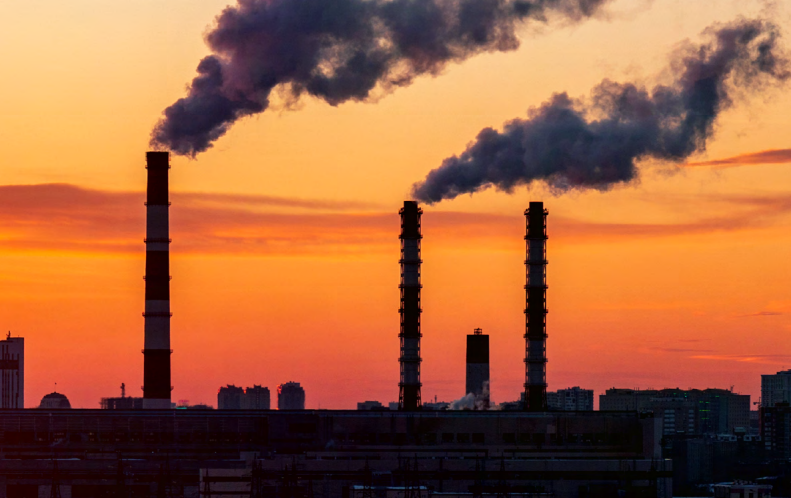
WorldFAIR Project (D7.1) Population Health Data Implementation Guide
This implementation guide describes the way all aspects of the data are made available for use, both within and from outside the INSPIRE Network community, using standard metadata to describe the data. This is an exploration of how generic standards can be used to express the agreed community metadata set.
WorldFAIR Project (D8.1) Urban Health Data - Guidelines and Recommendations
This report provides a summary of actions and findings of the Urban Health Mapping and Assessment (Task 8.1) for WorldFAIR Work Package 08.
This report describes the types of data used for disaster risk reduction (DRR) and provides two country case studies, for Fiji and Sudan, with an in-depth look at the DRR datasets and associated metadata used by each country.
WorldFAIR Project (D12.1) Disaster Risk Reduction Case study
This report describes the types of data used for disaster risk reduction (DRR) and provides two country case studies, for Fiji and Sudan, with an in-depth look at the DRR datasets and associated metadata used by each country.
WorldFAIR Project (D13.2) Cultural Heritage Image Sharing Recommendations
Deliverable 13.2 aims to build on our understanding of what it means to support FAIR in the sharing of image data derived from GLAM collections. This report looks at previous efforts by the sector towards FAIR alignment and presents 5 recommendations designed to be implemented and tested at the DRI that are also broadly applicable to the work of the GLAMs.
Adapting industry to withstand rising temperatures and future heatwaves
In this report, the IMechE considers the challenges of adapting industry to future climate change-induced heat-related impacts. It explores the effects on industry and its workforce of increases in ambient temperatures and more frequent, severe, prolonged heatwaves and how engineers should respond.
Thriving: Making cities green, resilient, and inclusive in a changing climate
This report examines the two-way relationship between cities and climate change, concluding that cities also hold one of the keys to solving the climate crisis. With data from more than 10,000 cities, the report offers insight into how to help cities become greener, more resilient, and more inclusive – in other words, on how to help their cities thrive – in a changing climate.
A new ICRC/Norwegian Red Cross policy brief "Making Adaptation Work" presents how the humanitarian consequences of environmental degradation and climate change are aggravated by armed conflict in the Near and Middle East, and which adaptation approaches are emerging to face the compounding impact using examples from Iraq, Syria and Yemen.
Gendered impacts of climate change: Evidence from weather shocks
This paper reviews the economic literature linking weather shocks (such as floods, droughts, and extreme temperatures, among others) and a large range of outcomes. The biggest gendered impacts are due to existing gaps and social responses to shocks.
The report provides an overview of the main obstacles that coastal managers from the Mediterranean region face in adapting their cities. Accordingly, it addresses the issues of how to design sustainable adaptation strategies through a coordinated approach at the regional and local levels; how to articulate measures over time, particularly in the context of the transformation of key sectors such as tourism.
Pacific Islands Pacific observatory, climate monitoring: Climate database in the Pacific
The Global Operations Support Team (GOST) has developed tools to process a curated set of medium resolution climate datasets (5 to 10 km), producing monthly and daily raster files (geotiffs) for each climate indicator. Climate data is a critical resource to help development actors prepare for and address the challenges of a changing environment.

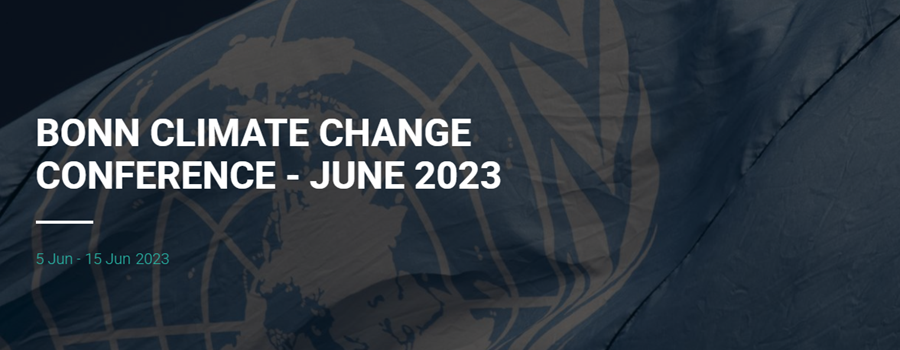
Bonn Climate Change Conference - June 2023
Bonn, Germany (1 June 2023): Governments must use the Bonn Climate Change Conference to drive forward steps to phase out all fossil fuels, and demonstrate a step-change in ambition, finance and implementation of actions that can tackle the climate crisis, according to WWF.
2023 Expert Forum for Producers and Users of Disaster-related Statistics
The 2023 Forum is being organized third year in a row, following successful forums organized in 2021 and 2022 hosted by ECE and ESCWA respectively.
[UNDRR GETI - ARISE] Understanding Sendai Framework on DRR: An Option to Reduce Cost
The four-part webinar-workshop series organized through a Tripartite Collaboration with Japan, India, and the Phillippines aims to help network members gain a deeper understanding of SFDRR's goals and by showcasing the value of its programs and initiatives in reducing business operational costs and disaster-related losses and damages.
Social Media for Disaster Risk Management: Researchers meet Practitioners
On the 7th and 8th of June, between 15:00-18:00CET each day, we will go for a deep dive into the exciting world of crisis informatics with our 3rd workshop "Social Media for Disaster Risk Management" Researchers meet Practitioners". We'll explore the transformative potential of user-generated data, and how it's actively shaping real-world crisis response strategies.
Events on Disaster Risk Management (europa.eu)
A list of upcoming Disaster Risk Management events to look out for.
International Symposium on Transportation Data & Modelling (ISTDM2023)
ISTDM 2023 offers scientists a forum to discuss processes and challenges to properly model and manage future transport systems. It also provides opportunities to meet policy makers and help them shape future legislations in the transport field.
